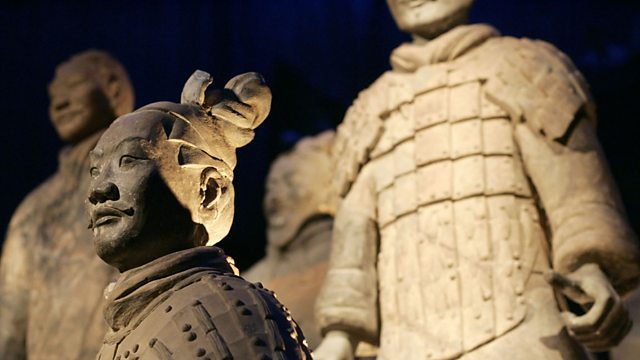China's Warring States period
Melvyn Bragg discusses an epoch of astonishing聽productivity in Chinese history after Confucius and before the Terracotta Army that聽has great parallels with the golden age of Greek culture.
Melvyn Bragg and guests discuss the astonishing聽productivity of the Chinese Golden Age. 400 BC to 200 AD is known as the Axial Age, when great civilisations in Asia and the Mediterranean forged the ideas that dominated the next two thousand years. In China the equivalent to the Golden Age in Greece was the Warring States Period. It was a time of political turmoil, economic change and intellectual ferment that laid the foundations for the first Chinese Empire. Astronomy was systematised, the principles of Yin and Yang were invented, Confucianism grew and Taoism emerged, as a hundred schools of thought are reputed to have vied for the patronage of rival kings.Why was a period of war such a fertile age for culture and thought, what kinds of ideas were developed and how do they still inform the thinking of nearly a fifth of the world鈥檚 population?With Dr Chris Cullen, Director of the Needham Research Institute at Cambridge University; Dr Vivienne Lo, Lecturer at the Wellcome Trust Centre for the History of Medicine; Carol Michaelson, Assistant Keeper of Chinese Art in the Department of Oriental Antiquities at the British Museum.
Last on
Broadcasts
- Thu 1 Apr 2004 09:00主播大秀 Radio 4
- Thu 1 Apr 2004 21:30主播大秀 Radio 4
In Our Time podcasts
Download programmes from the huge In Our Time archive.
The In Our Time Listeners' Top 10
If you鈥檙e new to In Our Time, this is a good place to start.
Arts and Ideas podcast
Download the best of Radio 3's Free Thinking programme.
Podcast
-
![]()
In Our Time
Melvyn Bragg and guests discuss the ideas, people and events that have shaped our world.


